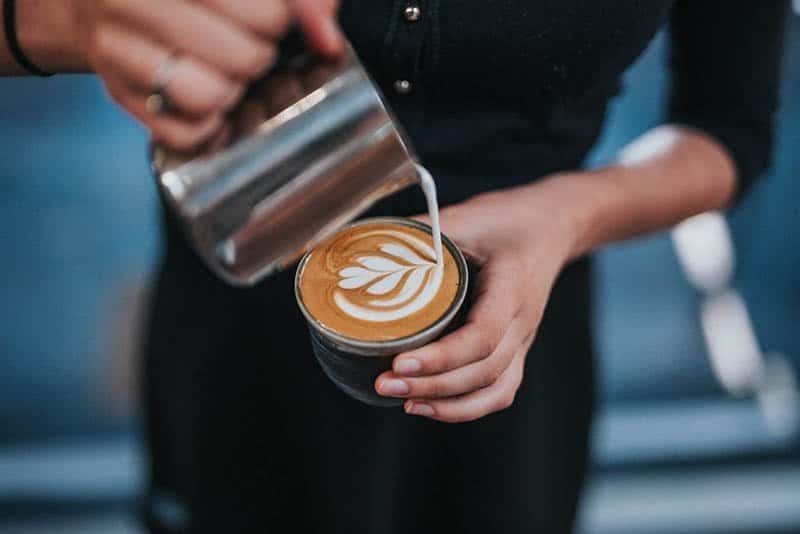No products in the basket.

All about beans
Enjoyed by billions since the 15th century, coffee is a beloved beverage we can’t seem to get enough of. But with so many different products and flavour profiles available, even the biggest brew enthusiasts might be left scratching their heads when asked “what does coffee taste like?” On the other hand, those new to the brew will surely be wondering what all the fuss is about.
Whatever the case, the taste of coffee can be a complex topic. In this handy guide, we answer all of your burning questions, including:
In simple terms, many describe quality coffee as a good blend of sweet and bitter, often with a hint of acidity. Coffee comes from botanical seeds, or ‘beans,’ which contain hundreds of flavour compounds – making it hard to pinpoint the precise taste of coffee or compare it to anything else. These beans come from all over the world and are roasted before being ground and brewed, adding further complexity to the pot.
One thing all coffee has in common is the uniquely ‘roasted’ taste and aroma, which you could say has a certain nuttiness. Beyond that, there are hundreds of flavour profiles to choose from. Once you have become acquainted with the distinctive taste of coffee, you will start to distinguish between the many different flavour profiles.
First up, it’s important to know that coffee comes from two different cultivars of the same plant. These are known as Robusta and Arabica. Robusta beans tend to be stronger, and more bitter than sweet, and are often used in lower-cost coffee options. Arabica is considered to be a higher-quality bean that hits the sweet spot between brightness and acidity, allowing for a wider range of flavour profiles.
Arabica beans grow in tropical regions around the equator, with varying environmental conditions. These conditions often dictate the ‘flavour profile’ of the coffee, with a wide range of notes and undertones used to describe each one. This includes everything from chocolate and caramel to berries, fruits and spices. You can often pick up on these flavour hints after the initial hit of coffee has subsided.
When done properly, the decaffeination process should not alter the taste of coffee too much, if at all. Many methods have been developed over the years to extract caffeine from unroasted coffee beans while leaving flavour compounds behind. These ‘decaf beans,’ are then roasted and brewed in the same way regular coffee is, leading to a barely discernible difference in flavour.
The PH levels of coffee vary from bean to brewing method, but the average cup of coffee is around 5 on the PH scale, making it mildly acidic. The brewing process releases compounds such as chlorogenic and quinic acids, which can be reduced when you choose cold brew coffee. Darker roasts are also said to have lower acidity levels, which is helpful to know if you suffer from acid reflux or IBS.
There are a few reasons why your coffee might have a bitter taste:
When freshly ground coffee beans come into contact with water, they release all of their complex flavour compounds in a process called extraction. Very finely ground beans can sometimes result in ‘over-extracted coffee,’ leading to additional bitterness. To prevent this, opt for a coarser grind, or if you use a French press, you should plunge your coffee sooner.
The amount of time beans spend baking has a distinctive effect on their colour and quality. Lighter roasts spend less time in the roaster, leading to a milder finished flavour. Medium roasts might be the Goldilocks of coffee – right in the middle and just right for many. Meanwhile, coffee connoisseurs often favour dark roasts for their deep and complex flavours.
If your coffee is overly bitter, it may be because the beans have been left too long in the roaster and burnt. To avoid extremely bitter blends, steer clear of anything labelled as dark, or high intensity.
We’ve already talked about Arabica vs Robusta, so you know that lower-quality Robusta beans tend to bring more bitter flavours. Low-quality beans are also often over-roasted to hide imperfections which come from mass harvesting and poor growing conditions. Stick to speciality blends, and you’ll avoid any bitterness caused by poor-quality beans. Sometimes it pays to be a coffee snob!
To make matters more complex, the quality of your water can also play a part in the palette of your coffee. Hard water can highlight bitter notes in coffee, so try to stick to filtered beans where possible.
Finally, the water you use should never be boiling hot because this can lead to a burnt, bitter taste. Always leave your kettle to rest for a minute or two for optimum brewing conditions, and don’t forget to clean your brewing equipment between each use!